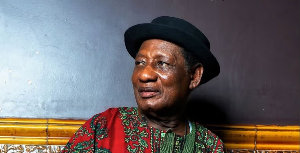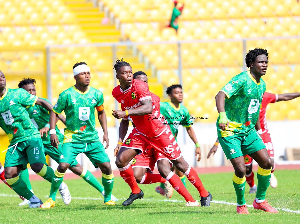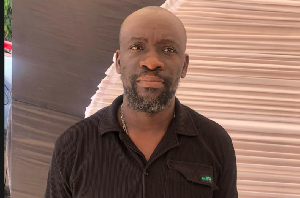SOMETIME ago Dr. Reuben Abati of The Guardian catalogued his experiences when he attended a one-week workshop in Accra, Ghana. He outlined some of the progress being made by the country on the economic and social fronts. A couple of weeks later, someone else wrote to counter that article accusing the mercurial writer of lopsidedness in his account of the situation in Ghana.
According to him, Abati stayed in Ghana for just one week and in the capital Accra, which was not enough for him to write authoritatively about the situation in Ghana.
The truth of the matter is that once in Ghana, you don't really need up to a week to begin to notice significant differences in different aspects of life in Ghana. The point should be made clear from the outset that the purpose of this article is not to eulogise one country while castigating or disparaging another, but to share experiences and see how we can all contribute in our own ways to make our own dear country Nigeria a better place for us all.
I shared experiences with a friend of mine, one Dr. A. U. Igwe of the Nnamdi Azikiwe University Awka currently on Technical Aids Corps assignment in Ethiopia and he wrote back to inform me about the steady progress being made by Ethiopia different from the stereotype and public perception of the country.
He noted that, instead of forever looking up to Europe and America as examples, African countries should rather re-examine their strategies by looking inwards and emulating some of those neighbouring African countries that are already making progress.
Ghana has been consistently listed by the World Bank as one of the nine African countries that are currently making progress and where it is safe and encouraging to do business, some of which include Senegal, Mozambique, Botswana, Uganda, Lesotho and Kenya. Unfortunately, the current political situation in Kenya has made nonsense of the gains of the past years.
Although I have read and heard much about Ghana, I had never been to that historical country until January 2006 when I went there on study leave. I was one of the eight successful Nigerians who won the African Capacity Building Foundation (ACBF) scholarship to undertake a Masters Degree programme in Public Sector Management at the Ghana Institute of Management and Public Administration, GIMPA, located in the Ghanaian capital, Accra. This opportunity enabled me to visit many parts of Ghana and to see things first hand.
To begin with, the Public sector reforms are gradually taking root in Ghana. There is serious consciousness and attention to service delivery within the public and private sectors. The rule rather than the exception is that fees, rates and charges for government services are not duplicitously inflated by desk or schedule officers. You pay the correct charges as indicated in your receipts and not the situation where you pay exorbitantly high fees or charges only to discover to your amazement that only half of what you paid is actually reflected in your receipt while the remaining chunk goes into private pockets.
If you travel to Ghana by road you will first notice the difference at the border posts. The Ghanaian post is the only post you do not pay anything for any service that does not attract fees. And it is the only post where you are treated decently and professionally, even courteously. Not so in all the other border posts where even just to stamp your passport you must part with some money, obviously unreceipted for besides being treated rudely and discourteously by the officials.
The worst of them all is the Republic of Benin border post. All the talks about ECOWAS protocols on free movement of goods and persons are only at the policy level not at the border posts.
The situation in Ghana is really better experienced. The economy of the country is relatively stable; interest rates, inflation and other macro-economic variables are currently at reasonable and tolerable levels. No doubt, the Ghana situation was really bad in the 1980s.
Remember the bad experience of the "Ghana must go" era of the late 1980s when Ghanaians were forced to return home from Nigeria but today the story is quite different. The Rawlings revolution may have set the pace on which the Kuffour administration is consolidating. The government is significantly responsive and committed to the goal of taking Ghana to a middle income country by 2015. With relatively meager resources and their national budget being 60 per cent donor driven, there is apparent commitment to good governance, rule of law, due process, openness and accountability.
When I was going to Ghana I left Nigeria with a packet of candles containing eight sticks. When I arrived there I gave out five sticks to some of my Nigerian colleagues leaving there with me. As I was leaving a year later, I left two and a half candle sticks in my wardrobe. I had planned to buy a rechargeable lantern on my arrival in Ghana but I discovered there was really no need for it.
Life in Ghana is relatively less stressful. In searching for an appropriate adjective to use, somebody has said Ghana is organised and I totally agree with him. The people are at peace with themselves, at peace with their nation and at peace with their visitors. They are not in a rush for anything. Some people may refer to them as less ambitious, prim or even timid but the truth is that there is something about them which sets them apart. They appear to have discovered something, some missing link in their march towards development which many other African countries are yet to grasp.
For example, my friend and course mate Suleman Garba Gora of the FCT Administration brought his car to Ghana and the horn became faulty, we did not fix it throughout our stay in Ghana because there was virtually no need for it until we started preparing to return to Nigeria. The people drive responsibly which accounts for very low accident rates in the country. The moment you trafficate to turn off or enter a main road, vehicles coming from opposite directions will stop for you. You don't need to blow your horn or even flap your hands and there are no 'okada' overtaking from left and right. Only private motorcycles are allowed in Ghana.
Also the moment any pedestrian indicates interest to cross the road, all vehicles from the opposite direction will stop for you, you do not even need to appeal to them, they just naturally stop for you to cross. Traffic lights are functional and effective and people obey traffic rules. The people queue up at bus stations, even white people queue up alongside blacks at bus stations. They enter 'Tr_ - Tr_', the equivalent of our 'molue' or 'Tuke - Tuke'. They feel very much at home in Ghana.
The universities in Ghana have considerable number of whites. In the city of Accra life is simple and orderly. The city is not oppressive. It is not a city only for the rich. It is a city for both the rich and the poor. It is a city where everybody is conscious of what he does. You don't throw dirt or papers anyhow. You don't urinate anywhere. You don't drink sachet water and drop the paper anywhere; there is a cherished culture of cleanliness and orderliness among the people.
An incident occurred one day, some Nigerians who came for a seminar asked us to take them out. (By the way international seminars, conferences and workshops drawing participants from all across Africa are always taking place in Ghana. You can conclude why.) So we took them to the popular Achimota Golf Club House, an open relaxation area around 7 to 8p.m. (There are numerous such relaxation spots across the city of Accra). These were senior officers in the public service and we were relaxing with drinks and the popular 'suya' on sticks. One of our Nigerian friends finished his suya and dropped the stick on the ground and one of our Ghanaian friends and a senior official in the Ghanaian Public Service quietly bent down, picked the stick and placed it on the table.
The Nigerian exclaimed "You mean you have reached this level?" we all joked and laughed but that is just how it is there. Even in the villages where there are mud houses, you will be surprised at the level of neatness of the environment. We learnt it was a historical influence from the various European missionaries; but it is a cherished tradition among the people particularly the elderly and it is catching on even with the youth.
Another important thing which could not escape my attention is the level of patriotism among the people. There is a certain air of moral, social and political superiority among them when they compare themselves with others on the continent. No matter how friendly you are with a Ghanaian don't ever make bad comments about his country and you will never hear him talk bad about his country. Virtually every car in the country whether private or taxi carries the Ghanaian flag. The national colours of green, red and yellow are sacrosanct. They are made into bangles, pencils, biros, notebooks, mufflers, hand and head bands and a host of other conceivable ornaments. The national cloth, the 'kente' is a symbol of national unity for which the textile industry receives government encouragement through various means. For example, Fridays are specially dedicated by government for Ghanaians to adorn their local fabric either to work, market or at home and the people observe it religiously with pride.
There is so much to talk about really, for instance, the police do not disturb you except you run foul of the law. There is relative security of lives and property. Ghana, like all other countries obviously has her own shortcomings but the truth of the matter is that Ghana is making progress and the country is seriously preparing for take-off.
The litmus test for Ghana is the general elections in December this year when President John Agyekum Kuffour would have concluded his two terms in office. One can only pray that they get it right so that they can sustain the gains already recorded.
Delta Broadcasting Service, Asaba, Delta State. (First published by The Guardian, Nigeria)
General News of Monday, 28 January 2008
Source: dailyEXPRESS Newspaper
Ghana is making progress
Entertainment











